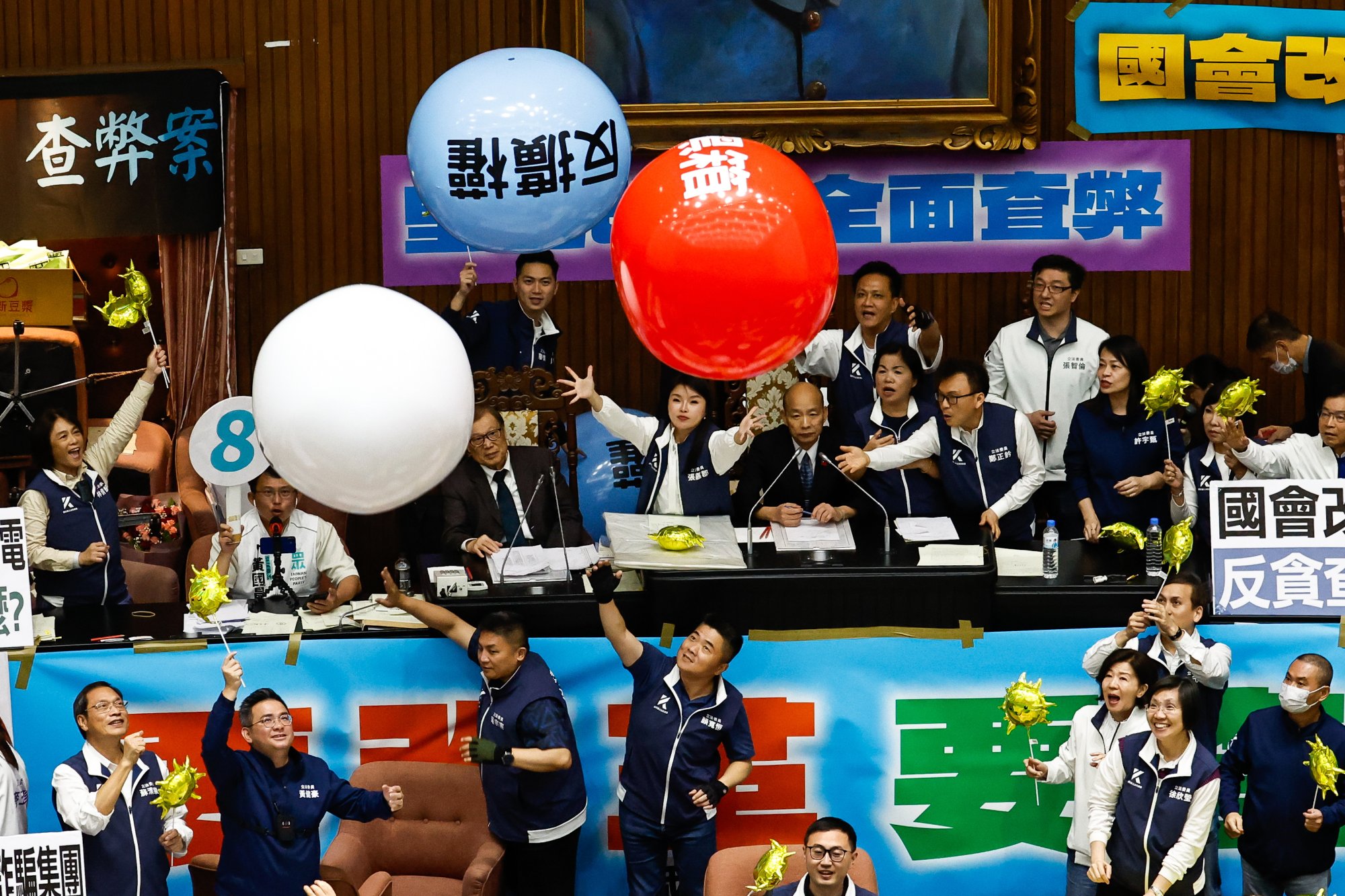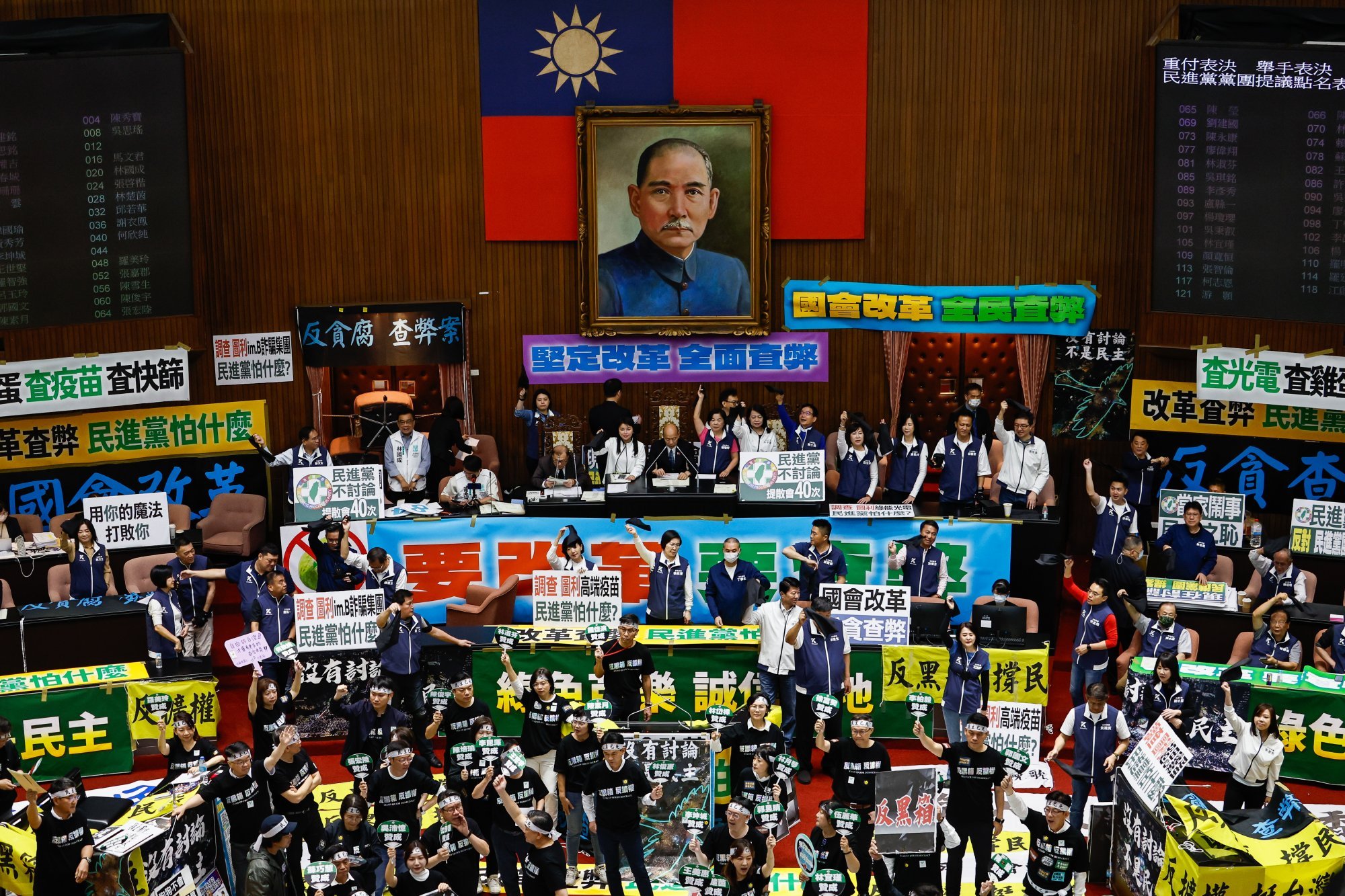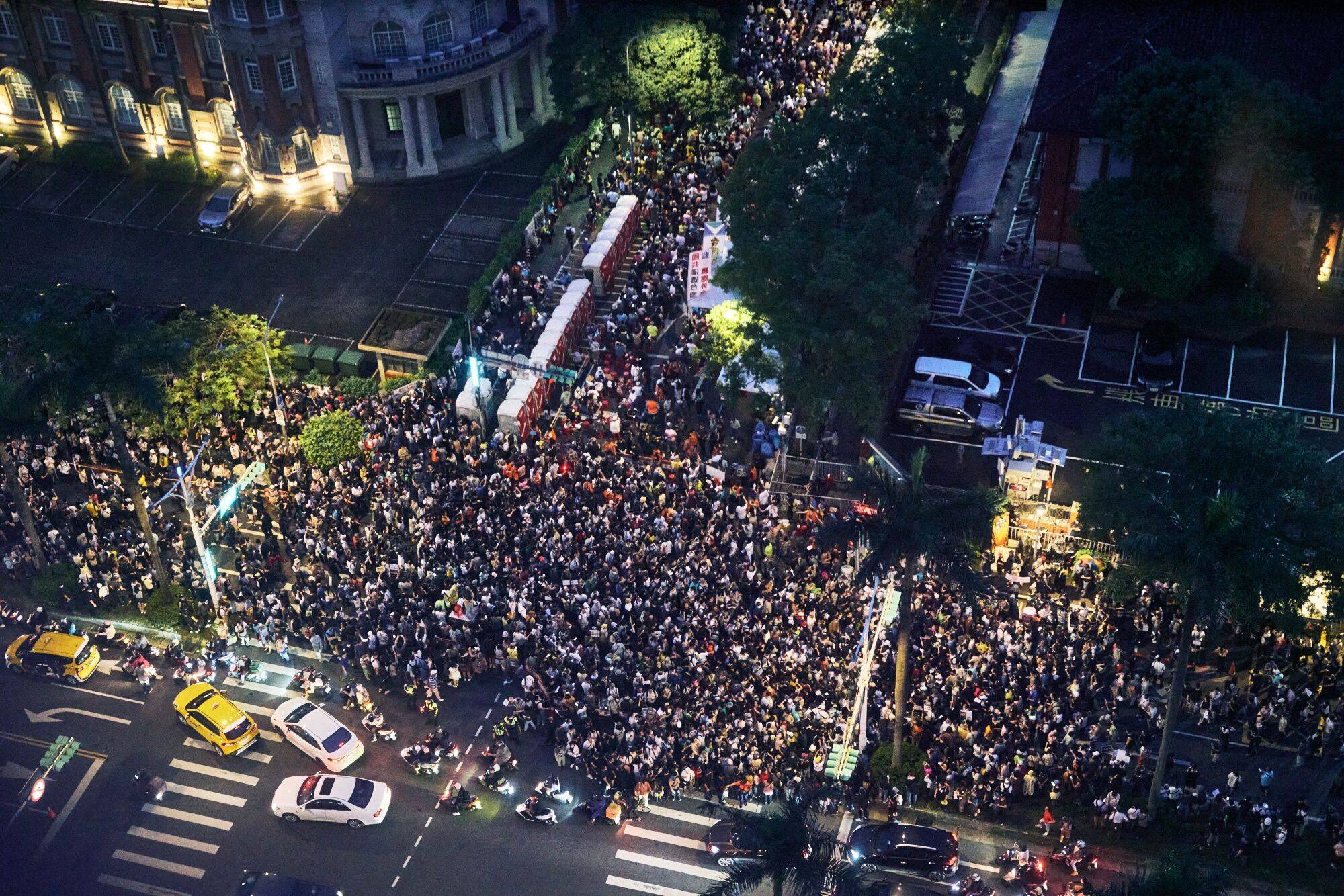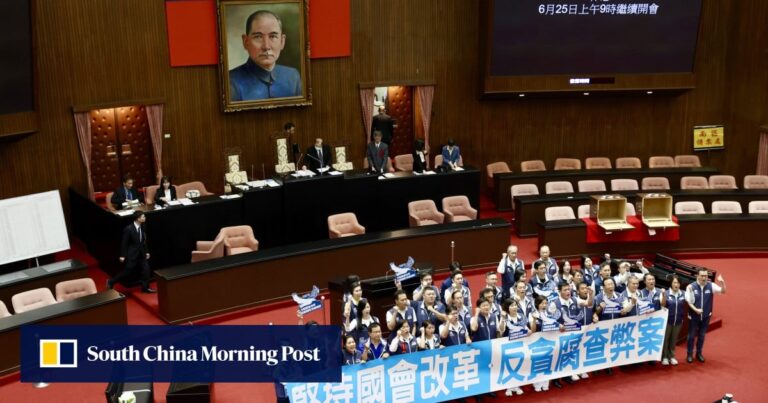Cabinet spokesman Chen Shih-kai said the timing of the request “depends on the president’s promulgation of the law”.
Expecting defeat, DPP lawmakers had already vowed to take the case to the island’s Constitutional Court and seek a full justice’s ruling on whether the bill violates the constitution.
The reform bill would give lawmakers oversight powers over the executive branch, including expanded investigative powers, creating a system similar to that held by the U.S. Congress.
If a public official or employee refuses to provide information in response to a lawmaker’s question or makes a false statement during a public hearing, they can be found guilty of “contempt of the legislature” and fined up to NT$200,000 (US$6,170).
The Act also empowers legislators to request information and documents from government agencies, the military, corporations, organisations and other relevant individuals.
Failure to comply could result in fines of up to NT$100,000 (US$3,000), with similar penalties also applying to late responses or deliberate concealment of relevant information.

The law requires the president to deliver an annual state of the island address by March 1 each year and answer questions from lawmakers. It also requires appointments to key government posts to be made by open ballot.
Parts of the bill, including the expanded surveillance powers, were proposed and supported by leading Democratic Party lawmakers when the party was in opposition, but the cabinet argues the bill will weaken administrative management.
Taiwan’s Premier Chao Yong-tai told the Legislative Council on Thursday that he denounced the reforms as a “serious abuse of power” by the opposition and said the cabinet had no choice but to reject the bill in its entirety.
Cho argued that the bill, which requires the president to report to Congress annually and answer questions, violates the Constitution, described it as a “disruption to governance” and suggested it be reconsidered.
He also criticised opposition lawmakers, accusing them of overstepping their authority and violating the fundamental rights of the executive, judicial and regulatory authorities, as well as the people.
The opposition argues that the DPP’s complete control over the government and legislature over the past eight years has seen it evolve into a “monster of power that controls everything in Taiwan” without any legislative oversight.

Observers expect the Democratic Progressive Party (DPP) government to face increasing hostility from the opposition-dominated parliament, exacerbating political divisions on the island.
Huang Hui-hua, research director at the Taiwan Institute for International Strategic Studies, a Taipei-based think tank, said the veto was “an attempt to circumvent parliamentary checks and balances and undermine the authority of the legislature.”
Lai’s government has described the bill as “immoral and unconstitutional” and opposed it on seven grounds. The opposition argues it is legitimate to enact a law that will strengthen legislative oversight of the government, Lai said.
According to Huang, pro-DPP media personnel have been actively expressing their views on media platforms in an attempt to sway public opinion, sowing fear among ordinary people that they may be punished if the bill is implemented.
“This political struggle has escalated into a media war of propaganda and psychological tactics, fueling an atmosphere of instability in Taiwan,” she lamented.
“Both camps are using information to strengthen their positions, rallying their supporters and holding protests.”

Since the bill was introduced last month, supporters on both sides have rallied outside Parliament and taken to the streets, sparking further divisions.
Lai’s approval rating has fallen nearly 10 points since he took office in May, falling to 48.2 percent from 58 percent a month ago in the latest poll conducted by the Taiwan Public Opinion Foundation on Monday.
“This represents a loss of nearly two million supporters in just one month and sends a serious warning signal,” said Michael Yu Yinglong, chairman of the foundation.
You said Rai’s drop in popularity could be partly attributed to political instability resulting from conflict between the cabinet and Congress since the election.
Political instability and public unrest stoked by both the opposition and the DPP – whose supporters have been called upon to take to the streets in protest – were also factors, he said.
Barely a month after taking office, the Cabinet has already been swept up in a flurry of parliamentary reforms, but “no notable results have been achieved so far,” Yu said.
“Inappropriate handling of certain important issues” by some government agencies has also affected Lai’s popularity, he added.
Residents’ frustration is growing over the Ministry of Economy’s decision to raise electricity tariffs following periodic short-term power outages in recent months, as well as the failure to curb soaring house prices.
And last week, doubts were raised about whether the island was safe from attack after the coast guard failed to spot a speedboat from mainland China – reportedly piloted by a former People’s Liberation Army Navy captain – until it reached a strategically sensitive river near Taipei.
Beijing considers Taiwan part of its territory and would reunite it with mainland China, by force if necessary. The United States, like many other countries, does not recognise Taiwan but opposes any attack on it and is its largest arms supplier.
James Yifan Chen, a professor of foreign affairs and international relations at Tamkang University in New Taipei City, said Lai and his administration’s apparent unwillingness to work with the parliamentary majority was contributing to his erosion of popularity.
“Instead, what he’s doing now as leader of the Democratic Party is [confronting] Chen criticised “opposition pressure and disregard for majority votes”, adding that it was “not a good start to Lai’s goal of achieving good results in his first 100 days in office”.
Chen said the conflict “shows that the relationship between the executive and legislative branches will be tough in the future.”
The Li Ming government is also addressing strained cross-strait relations after the new leader declared in his inaugural address on May 20 that Taiwan and mainland China are “not subordinate to each other.”
Provoked, Beijing, which had already called Lai a “staunch separatist,” responded by simulating a blockade of the island in a two-day military exercise that began three days later.
“The people of Taiwan believe that the President [reconcile] “The aim is not only to ease domestic political differences but also to stabilize cross-strait relations rather than worsen them,” Chen said.


